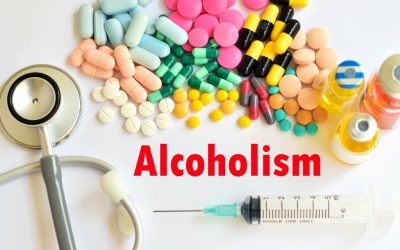How does alcohol affect your mood? Fact sheet
The mesolimbic system originates primarily in the A10 cell group and extends to the ventral striatum, which includes the nucleus accumbens (NAc) and the olfactory tubercle (OT). The mesocortical system also originates primarily in the A10 cell group and affects various regions of the cerebral cortex. Detox will clear the alcohol from your system, helping your brain to re-achieve balance. Dopamine production will return to normal, and other parts of the recovery program will offer things that will help your brain boost dopamine levels without chemicals. Therapy sessions will teach you coping techniques to deal with the triggers that fuel drinking. You may also receive treatment for depression at the same time, as it is one of the primary withdrawal symptoms.
- We recently launched our in-app chatbot, Melody, who is powered by the world’s most powerful AI technology.
- Dopamine is a neuromodulator that is used by neurons in several brain regions involved in motivation and reinforcement, most importantly the nucleus accumbens (NAc).
- The etiology and pathology of alcohol dependence is the outcome of a complex interplay of biological, psychological and socio-environmental factors.
- Initial doses of alcohol signal your brain to release dopamine, the so-called “happy hormone,” which can cause you to feel stimulated and energized (3).
- These results are largely in agreement with the literature, though some disparities exist.
- It’s a crucial part of our brain’s reward system, the fascinating neurological network that drives us to pursue experiences and activities that make us feel good.
As discussed later in this article, however, alcohol does not induce a comparable habituation. Serotonin may interact with GABA-mediated signal transmission by exciting the neurons that produce and secrete GABA (i.e., GABAergic neurons). For example, serotonin can increase the activity https://ecosoberhouse.com/ of GABAergic neurons in the hippocampal formation (Kawa 1994), a part of the brain that is important for memory formation and other cognitive functions. Consequently, alcohol’s effects on serotonin may alter the activity of GABAergic neurons in the hippocampal formation.
Liver & Gallbladder Health
The resulting deficiencies can lead to cognitive impairment and alcohol-related brain damage. The more you drink, the more problems you’ll have with thought tasks and motivation to work. It’s also pretty hard to feel inspired and engaged if you’re also dealing with the physical effects, like dehydration, sleep deprivation, and headaches. On top of its essential role as a chemical in the brain, dopamine also acts as a hormone. It’s made by the adrenal gland, just like epinephrine and norepinephrine – the hormones that act behind your fight, flight, or freeze response.

While people’s responses to dopamine—its surges and letdowns—can differ, the near-universal desire to experience heightened pleasure can inform an understanding of addiction. Understanding the chemical mechanism that drives people to abuse drugs can explain why overcoming substance addiction–or other forms of addiction–can be so difficult. Using a PET scanning compound that targets dopamine receptors in the brain, the researchers were able to assess changes in dopamine levels after the participants tasted the liquids.
Alcohol Misuse and Binge Drinking
Whenever you get that rush of pride after accomplishing something, dopamine is probably surging in your brain. In fact, it’s there after you do anything that makes you feel rewarded, like earning money, eating good food, or having sex. In a study conducted by,[65] which looked at the data collected from a large number of multiplex, alcoholic families under the COGA, no association was found between the GABRA1 and GABRA6 markers and AD. Similarly, another study conducted by[66] found no association between the genes encoding GABRA1 and GABRA6 with alcoholism.
- We are passionate about sharing the process involved in living a drug and alcohol-free life.
- The resulting deficiencies can lead to cognitive impairment and alcohol-related brain damage.
- Furthermore, the author hopes that the present text will be found useful to novices and experts alike in the field of neurotransmitters in alcoholism.
- Anything you enjoy, including those risk-taking activities, can cause increased dopamine levels.
- Alcohol does not prevent the reuptake of dopamine while other substances do.
How alcohol affects you personally depends on your body chemistry, how much you drink, and your alcohol tolerance. In small doses, it can increase your heart rate, aggression, alcohol and dopamine and impulsiveness. Once your BAC reaches 0.2 mg/l or greater, its depressant effects on your respiratory system can become so powerful that they cause coma or death (3).

Leave a Comment